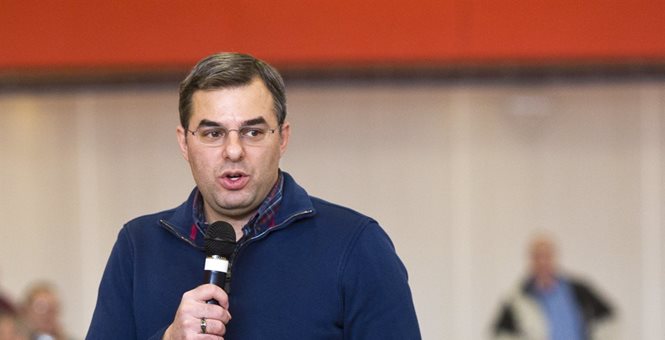
Well, he already left the House Freedom Caucus. He’s for the impeachment of President Donald J. Trump. It’s not shocking that Rep. Justin Amash (I-MI) decided to declare his intention to leave the Republican Party. It’s the usual crap from these clowns. He’s doing it because of principles. That’s fine, but even his stance on why eh supported Trump’s impeachment was a bit shaky since it means buying into the alleged (and probable) abuse of power that was exercised by the government against the Trump campaign during the 2016 election. If the Department of Justice Inspector General report is as scorching as we’ve heard from the grapevine, then everyone on this impeachment train is going to look like idiots. No, a lot of them already are, but it’ll be even more so. Regardless, Amash is done. He announced his exit from the Republican Party in an op-ed for The Washington Post (via WaPo):
My parents, both immigrants, were Republicans. I supported Republican candidates throughout my early adult life and then successfully ran for office as a Republican. The Republican Party, I believed, stood for limited government, economic freedom and individual liberty — principles that had made the American Dream possible for my family.
In recent years, though, I’ve become disenchanted with party politics and frightened by what I see from it. The two-party system has evolved into an existential threat to American principles and institutions.
In this hyperpartisan environment, congressional leaders use every tool to compel party members to stick with the team, dangling chairmanships, committee assignments, bill sponsorships, endorsements and campaign resources. As donors recognize the growing power of party leaders, they supply these officials with ever-increasing funds, which, in turn, further tightens their grip on power.
Modern politics is trapped in a partisan death spiral, but there is an escape.
Most Americans are not rigidly partisan and do not feel well represented by either of the two major parties. In fact, the parties have become more partisan in part because they are catering to fewer people, as Americans are rejecting party affiliation in record numbers.











